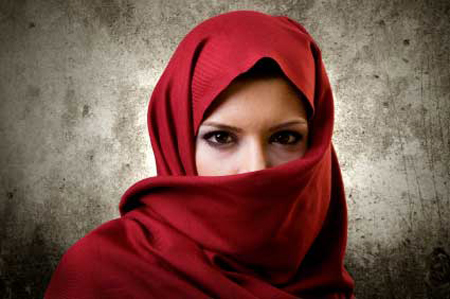socialtimes消息:本土化Facebook游戏在中东市场受欢迎
2011中东的社交游戏将会如何发展?如果说Facebook在中东的主要用户并非女性,这对开发者来说又意味着什么?为什么50%的Facebook用户使用英语界面?社交游戏在印度将会大有市场,但在MENA地区的增长方式可能就会略有不同。
最近,MENA地区(包含中东和北非)收到了他们在社交游戏领域的第一笔重要投资。互动投资控股公司(游戏邦注:Interactive Venture Holdings,一个投资阿拉伯初创企业的公司-)在上周资助了Wizard Productions和Gate2Play这两家约旦公司。在MENA地区,不光是游戏投资会越来越普遍,普通企业也将获得更多国际化发展机会。
据游戏邦了解,埃及和沙特阿拉伯2011年的经济有望增长4%至6%,这个情况有助于为企业营造一个更稳定的经济环境。另外,该地区的人口可能也可能增长1%至3%。目前仅中东地区就有2亿多的人口(212336924人),约占世界人口的3.1%。其中有6千多万(63240946人)为互联网用户,自2000年以来增长率达到1825.3%。
据称在该地区的6300万网民中,Facebook用户就达到1500万人。由于创建了一个阿拉伯界面,Facebook增加了350万阿拉伯用户,其中有50%用户选择英语作为在Facebook上的使用语言,还有25%的用户则选择了法语(游戏邦注:在19世纪的殖民时期,法语传播到了非洲)。
游戏邦还获知,64.6%的埃及Facebook用户主要选择英语界面;有29%的沙特阿拉伯网民登陆Facebook,其用户分成了阿拉伯语和英语两个阵营;在摩洛哥有82.3%用户则主要使用法语。那么,从该地区社交游戏的语言使用情况中,我们可以了解到什么呢?
要在MENA地区取得成功,游戏开发者就必须关注当地的不同语言使用习惯,而不是整个地区的通用语言。Zynga通过推出中文版的《FarmVille》扩大了这款游戏的用户规模。这种本土化策略也应该适用于MENA地区的社交游戏,只是可能会更复杂些。
中东和北非地区的文化习俗比较相似,为了针对这一地区开发成功的游戏,开发商需要创建既符合文化规范,又采用当地语言的本土化游戏。《开心绿洲》(Happy Oasis)是一款由Aranim开发的阿拉伯游戏,它是本土语言和文化习俗完美结合的典范。该游戏从《FarmVille》中获得了灵感,同时结合了中东环境特点,支持用户使用英语和阿拉伯语这两种可切换的语言。
开发者应针对MENA地区创建更多像《开心绿洲》之类的游戏,因为该地区的经济增长,必将给社交游戏带来更多发展机遇。另外需要注意的是,MENA地区仅有37%的Facebook女性用户,而美国女性用户的比例却高达56%,这种差异可能与两地不同的性别文化有关。
除此之外,开发者还需要了解的情况是,沙特阿拉伯最近对博客使用进行了限制:就像该国的媒体一样,网络写手需要获得新闻许可证,才可以发表文章。所以如果社交游戏将来也在当地遇到了同样的情况,那就要看开发者能否积极应对当地政府的管制了。(本文为游戏邦/gamerboom.com编译,转载请注明来源:游戏邦)
Facebook Gaming In the Middle East — A Happy Oasis?
What will social gaming in 2011 look like in the Middle East? Does it mean anything to developers that the primary users on Facebook in the Middle East are NOT female? Why is it that 50% of Facebook users in the Middle East use the English interface? Social gaming will be growing in the India market, but in a slightly different way in the MENA region.
Just recently, the MENA region – which consists of the Middle East and North Africa – received their first major investment for social gaming. Interactive Venture (IV) Holdings – a company that invests in start-up businesses for the Arab audience – backed two Jordian companies this past week: Wizard Productions and Gate2Play. Not only are investments becoming more common in the MENA region for gaming, but for entrepreneurs in general for international opportunities.
Both Egypt and Saudi Arabia’s economies are expected to grow by 4%-6% in 2011, this will in return establish a more stable climate for businesses. Along with growing economies, the MENA region is expected to increase in population by 1%-3%. The Middle East alone has a population of 212,336,924, which is 3.1% of the world’s population. Within that number are 63,240,946 internet subscribers – a growth of 1,825.3% from the year 2000.
Out of the 63 million internet users in the region, 15 million of them claim to use Facebook. Although Facebook saw an increase of 3.5 million Arabic users, because of their decision to create an Arabic interface, 50% reported using English as their primary Facebook language, while 25% selected French as their language of choice (the French language was spread across Africa during 19th century colonization).
Language preference depends upon where you are in the MENA region. Egyptian Facebook users primarily choose the English interface (64.6percent). In Saudi Arabia, where 29% of internet users log onto Facebook, consumers are split between Arabic and English. 82.3% of users in Morocco, on the other hand, select French as their primary language. So, what does language in the MENA region tell us about social gaming?
In order to be successful in the MENA region, gaming developers will be compelled to focus on the primary language of a particular area, not only the region as a whole. Zynga has opened their FarmVille user base by creating FarmVille 中文版, the Chinese version of the game. This same strategy needs to be adapted to social gaming in the MENA region. However, it’s a little more complicated than that.
The Middle East and the North African region share similar cultural norms. For successful gaming development, companies need to be able to formulate games that put together the cultural norms and the language of choice for that specific state. Happy Oasis, an Arabic game developed by Aranim, creates an almost impeccable example of the language plus culture approach. Aranim’s game, based on the FarmVille concept, but in a Middle Eastern environment, allows users to switch between the English and Arabic versions of the game.
Developers should focus more on generating products for the MENA region like Happy Oasis. With growing economies in the region, social gaming looks more promising than ever before. Before I end, I will leave you with this. Only 37% of Facebook users in the MENA region are female – a smaller percentage compared to the 56% in the United States. The difference in these numbers can be explained by the views of gender roles between the two cultures, which leads me to my final comment for developers.
Restrictions have recently been placed on bloggers in Saudi Arabia: Like the press in the country, online writers will have to obtain a press license to write. Do not be surprised if restrictions are placed on social gaming in the future, especially if developers begin to create games that may not sit well with the government in charge, but let’s take one step at a time.
CJ Arlotta covers the world of social gaming for development firms as well as the average consumer. Currently, he is accumulating more knowledge of the international gaming market to follow and understand what global developers may need to compete with already striving markets.(source:socialtimes)








































 闽公网安备35020302001549号
闽公网安备35020302001549号